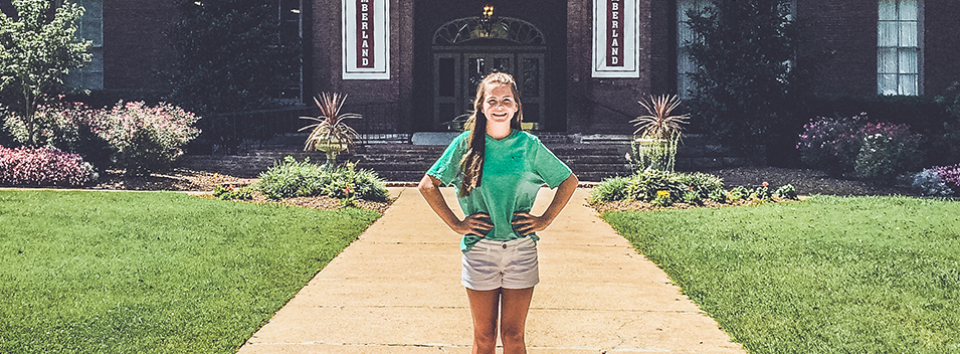11/3/2016
So, you’re in the second semester of your senior year of high school and instead of sitting back and wading in the waves until graduation day, you’re frantically paddling to shore before Hurricane Adulthood can drag you under. As one chapter of your life comes to an end, another is on the brink of beginning, and it’s suddenly occurred to you that you haven’t given college nearly as much thought as you probably should have. Sure, you’ve taken your ACT/SAT, filled out all of your applications, tweaked your personal essays, and bravely tackled the grueling process of completing the FAFSA. Your checklist for the future is nearly complete, and yet you still feel unprepared, uncertain, and a little dizzy.
“Do I have the money?”
“Did I pick the right school?”
“Can a person really live off of coffee pot ramen and clothes ironed quesadillas for four years?”
You’ve reached out to your dear friend GOOGLE, you’ve read the forums, the college prep blogs, and you’ve even resorted to posting a desperate plea on Yahoo Answers. You’ve sacrificed your time, your energy, and maybe even a little bit of your sanity, in hopes of finding the answers you desire, but the internet has betrayed you, and, somehow, you’re even more confused than you were before.
It’s probably safe to say that the biggest deciding factor students face in furthering their education is, more often than not, a question of financial means. Many students decide not to go to college simply because they struggle to receive adequate financial aid and live in fear of the commitment to a student loan (or loans, depending on one’s financial status). Scholarships are incredibly helpful, but unless you’ve managed to secure a full-ride, which is highly unlikely unless you’re the next Michael Jordan or Lebron James (which is not only highly unlikely, but the NBA now requires Americans to attend college, which Jordan and James were not required to do), you’ll still have to pay a hefty chunk of tuition out of pocket, and if we’re being honest, that’s easier said than done.
But fret no more, young, ambitious student. It’s time to get the answers you need, and not from just any anonymous voice on the Internet. Take it from someone who once stood where you are now. Carli Crutcher, a freshman at Cumberland University, took time away from her busy schedule to share with us why the Tennessee Promise Program may be the answer to all of your overwhelming, head-spinning, college-related questions.
Like many prospective college students, Carli was met with the obstacles of securing a higher education. “It gave my parents a financial break,” responded Crutcher when asked why she chose the Tennessee Promise Program. “It pushed me to go [to college] because it was basically free.”
College? Free?
No, you didn’t read that wrong. It really does say that two years of your collegiate education are completely free through the Tennessee Promise Program. Of course, it’s perfectly understandable that you would be leery. When have the words “college” and “free” ever been in the same sentence, side-by-side, and meant exactly what you want them to mean?
“I wanted to know how the program got money for the students,” said Crutcher, explaining her own doubts. “You know, I wanted to know what the ‘catch’ was.”
So what is the “catch?”

Carli explains that the “catch” really isn’t even a catch. If you’re a senior in high school, you can apply for the Tennessee Promise Program. Once accepted, all you have to do is attend two mandatory meetings, meet with a mentor through the program, and fulfill eight hours of community service each semester of your freshman and sophomore year. If you can do that, then your first two years of college are free.
“And it’s actually really rewarding,” Crutcher added, elaborating on her experience with fulfilling community service hours. “I made friends and that’s actually how I was introduced to my internship when I was volunteering at Second Harvest.”
According to the program, Tennessee Promise is acknowledged by 27 colleges of applied technology and 13 community colleges. Outside of those 40, there are 40 additional institutions that offer assistance in associate degree programs.
Out of 80 schools, Carli chose Cumberland University.
“I didn’t have a dream school,” said Crutcher. “I just wanted to go to a school that I felt comfortable at. There’s a sense of community here – everyone knows each other and gets along really well.”
She added that some of her favorite things about Cumberland University are the campus atmosphere, and the closeness between the student body and other faculty, and how beneficial the student-to-professor ratio is to her education. These are the aspects of our University she feels reaffirms her decision in choosing the path of the Tennessee Promise Program.
Carli didn’t share her opinion on coffee pot ramen or the nutritional value of the infamous clothes iron grilled cheese quesadilla, but she did provide us with answers to some of the scariest questions we face as incoming college freshmen.
As a successful business major entering her second semester, Carli expressed that making the leap from high school to college doesn’t have to be as traumatic of an experience as the world would have you believe. In fact, she proved that furthering your education is no longer a matter of financial circumstance, and if it is, I hope that after hearing Carli’s experience you understand that finding success is not a distant dream, but a reality that can be achieved through the Tennessee Promise program.



